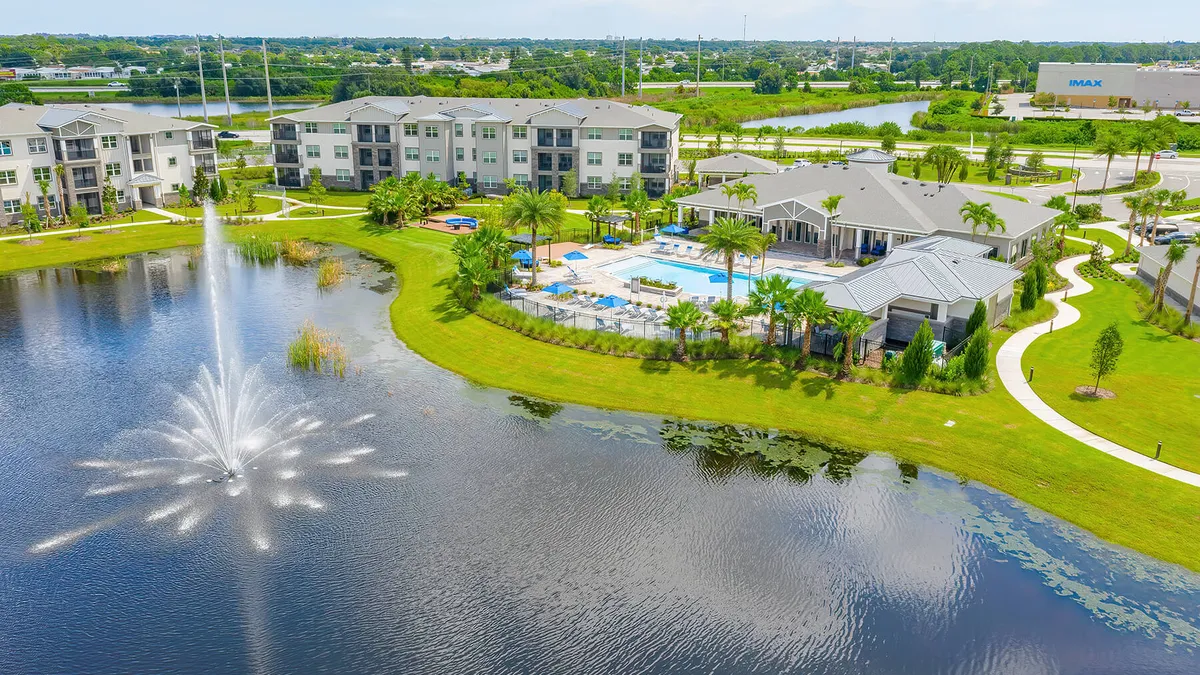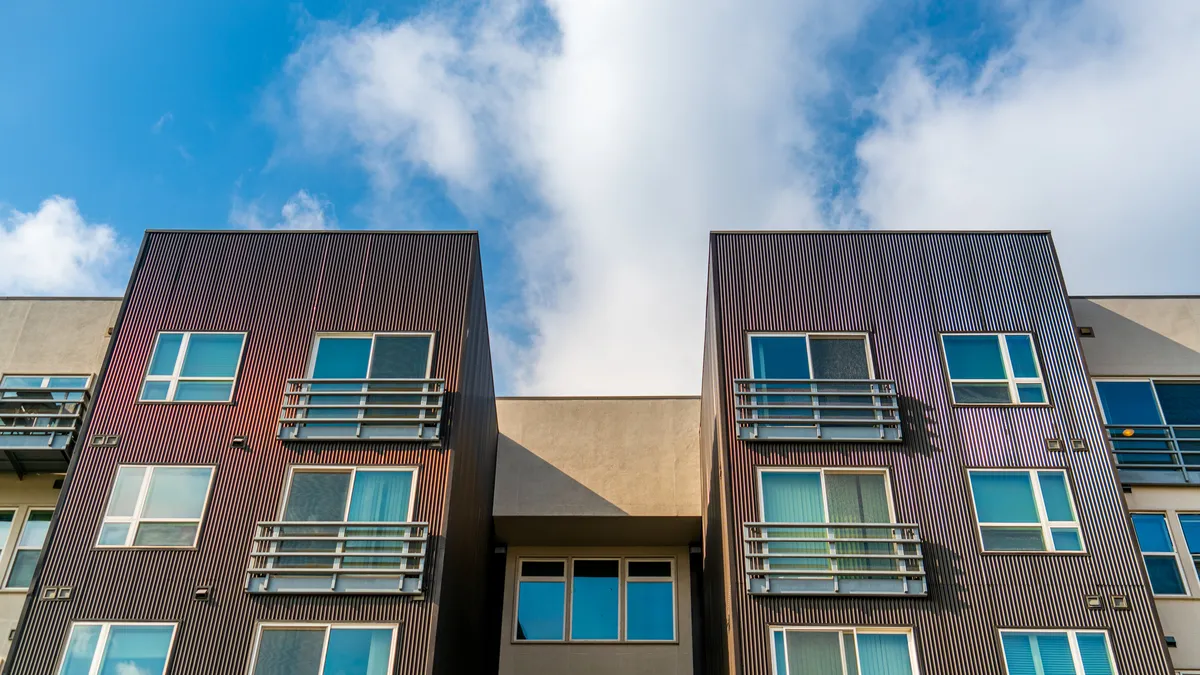John Foresi and Andrew Stewart founded Houston-based Venterra Realty in 2001. Since then, they have grown the company from four multifamily communities to approximately 70 properties with more than 20,000 apartment units across 13 Southeastern cities.
With that positioning, Venterra has been in a prime position to capitalize on strong Sun Belt rent growth over the past couple of years. But Foresi, the CEO, co-founder and director at Venterra, sees this coming to an end.
“There has been an almost year-and-a-half period of unsustainable revenue growth,” Foresi told Multifamily Dive. “As rent growth is clearly decelerating, it has been difficult for buyers and sellers to come to an agreement as the market gets repriced.”
Here, Foresi talks with Multifamily Dive about property prices, rent increases and maintaining a strong culture.
This interview has been edited for brevity and clarity.
MULTIFAMILY DIVE: What is happening to property prices?
JOHN FORESI: We feel that asset pricing [off of the 10% decline we have already seen] has a greater than 50% chance of modest additional decline. That is because of the increasingly negative macro-economic environment, which will further scare off more multifamily buyers for the balance of 2022.
The U.S. multifamily market is likely going through a painful, negative feeling of price adjustment in the short term. But that should be balanced with the undeniable, long-term positive attributes that the American economy and the multifamily market possess.
Do you see price sensitivity among renters?
There is already evidence in broader wage data that income growth is starting to return to a more normal pace. We don’t expect things to go backward. But by late 2022 or early 2023, we would expect to see rent growth much closer to historic norms, consistent with moderating renter incomes.

Rental growth rates are decelerating, but we don’t see this turning negative because aggregate income growth remains strong with 528,000 jobs added in July and wage growth of 5.2%. Wage growth is likely to moderate more slowly than inflation as wages tend to be much more sticky, meaning that people generally don’t get pay cuts. Whereas the price of gas, beef and other things can and does drop all the time.
What are Venterra’s biggest challenges?
We have seen rent control measures come back to the forefront thanks to the surging rents of the last year or so. First was Columbus, [Ohio], which was nixed at the state level. They passed a law banning it, which cut off the effort at the city level.
Tampa considered rent controls but thought better of it after getting staff feedback and listening to the local apartment association. Orlando is still going down the path, but nothing is set in stone just yet. There are lots of hurdles, both at the ballot and in court. We don’t expect it to survive.
But more deeply, rent control is just bad policy. Study after study confirms that rent controls destroy supply. They benefit a small handful of people who “won the lottery” by being in place when it came, but everyone else suffers as they simply can’t find a place to live. The cure for high rent growth is more supply, but rent controls stop that investment.
We think some of the push will fade a bit as rent growth normalizes — double-digit gains get a lot of attention. But normal, low single digits is what people have been used to for a long time. A bit of normality will be a good thing.
Venterra has been recognized for its workplace culture by Glassdoor and others. How do you maintain culture and retention in this environment?
As with all culture-related matters, it is not the words on the page that are important but the actions that we take day-in and day-out. Values are critical to building a great corporate culture, but it is not what we say that is so important. It is what we do. At the highest level, Venterra defines its values as “what we do when no one is looking.”
Our actions also speak to our strong belief in work/life balance. If we do not achieve this balance, the turnover among our colleagues will be high. That, in turn, makes it impossible to achieve a market-leading living experience for our residents, which is always our objective.
Click here to sign up to receive multifamily and apartment news like this article in your inbox every weekday.











